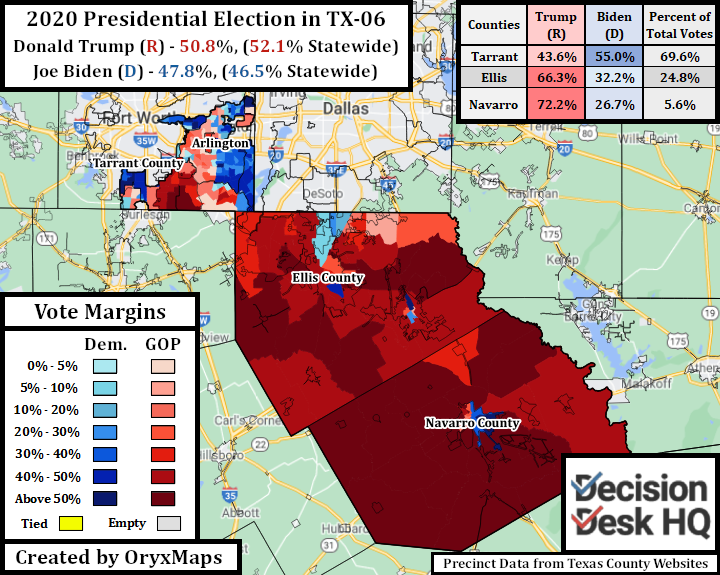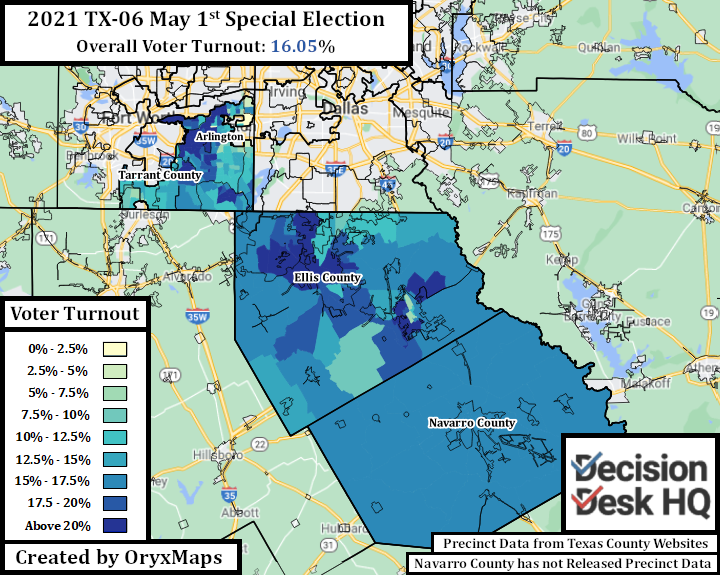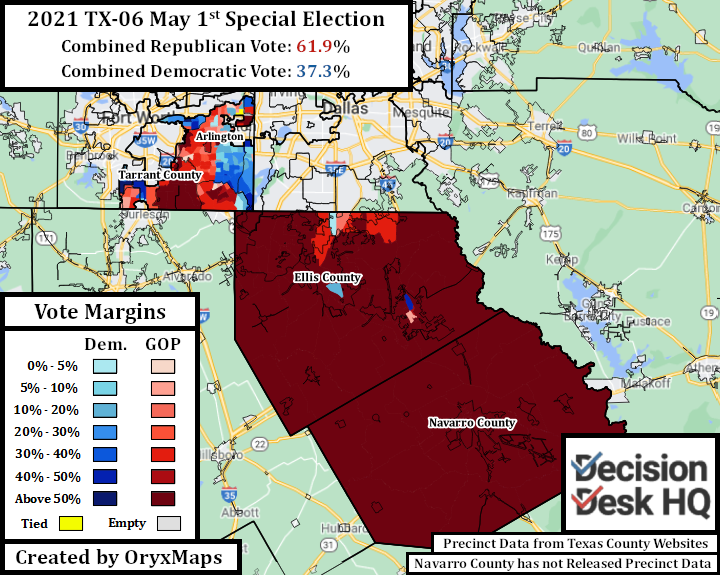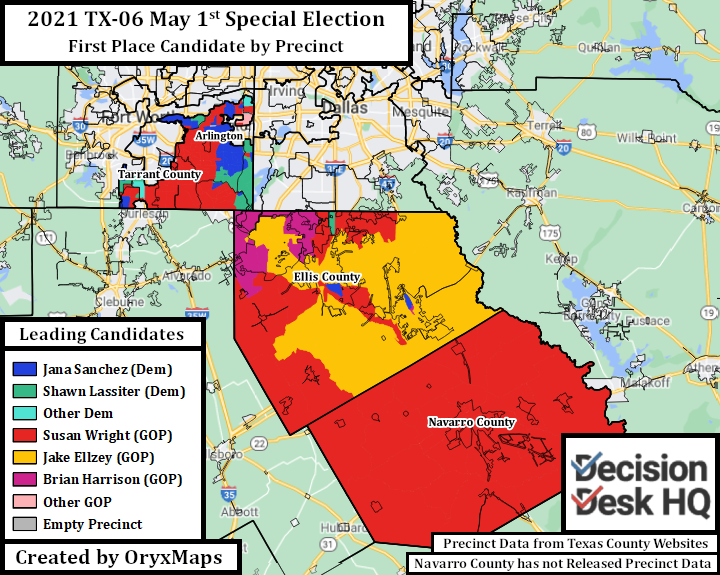The special election runoff for Texas’s Sixth Congressional district is a sleepier affair than most other special elections. Total turnout for the May blanket (all party) primary was 53K less than turnout for the special election in New Mexico’s First District despite TX-06 having over 100K more (ACS projected) residents than NM-01. Democratic voters and analysts lost interest in TX-06 when no Democrats and two Republicans – congressional widow Susan Wright and Texas State Representative Jake Ellzey – advanced to the runoff. Wright’s runoff campaign raised and spent less money than average for a competitive Congressional election, and neither candidate’s campaign has built a national profile. Neither Republican’s message attempts to appeal to Democrats, and both appear to expect a Republican-dominated runoff with lower overall turnout. The geographic concentration of the Republicans bases of support gives Susan Wright an advantage in the July 27 runoff, but regional differences in turnout will decide which Republican wins election to Congress.
No Democrats, No Problem
Texas Republican Senator Ted Cruz won TX-06 by a margin of 3.2% in 2018 over Democratic rival Robert “Beto” O’Rourke. Former President Donald Trump won the district by a margin of 3%, or 50.8% to President Biden’s 47.8%. In spite of this base of support, Democrats failed to get a candidate into the top-two finalists in the May primary. Blame for this failure fell upon lack of interest by national Democrats and aligned groups, and the inability of Texas Democrats to consolidate around one candidate. Ten registered Democratic candidates fragmented party support in the May primary, though this was only one candidate less than the eleven Republicans.

Democrats however often underperform the presidential toplines in the Southwest. Party organizers struggle to convince their minority-dominated (often largely Hispanic) coalition to vote in off-cycle elections. This is most pronounced in Texas special elections, even elections for safely Democratic minority access seats. A recent example is Texas Senate District 19 in Hispanic south Texas and San Antonio. Democrats lost the seat in a 2018 special election with a total turnout of 44.5K voters and then won the seat back during the 2020 general election when more than 318K voted. This is despite Democrats benefiting from Trump backlash in 2018, and then losing ground in overwhelmingly Hispanic areas in 2020.

78.5K voters participated in the TX-06 Special Election, or just 16.05% of registered voters. The 2020 election saw 340K voters cast ballots in the TX-06 congressional race. Only 37.3% of the TX-06 special election electorate voted for a Democratic candidate, or a topline decrease of ten percent when compared to recent general elections. Democrats would have had to consolidate support behind one serious candidate to guarantee a spot in the runoff with this electorate.

Geographic Partisanship
This is not the first time that Jake Ellzey faced a candidate named Wright in a Republican-only runoff. Ellzey ran for an open TX-06 seat in 2018 and advanced to the runoff with future Representative Ron Wright. Ellzey carried southern Ellis and Navarro Counties and Wright won Tarrant County. Wright won the runoff by 4.4% and went on to win election to Congress.

Ellzey maintains his base of geographic support: over half of his votes in the May special election came from the southern Counties. Ellzey won suburban Ellis County – the center of his state house district. Susan Wright lives in Arlington and received over 60% of her vote from Tarrant County. Even though Tarrant County comprises about 70% of the district’s population, only 58% of the blanket primary’s Republican voters lived in Tarrant. Ellzey’s path to victory requires strong turnout from the Southern counties and, conversely, Wright needs high turnout among Tarrant County Republicans.
The Republican Runoff
Both Wright and Ellzey identify as ardent Republicans. Wright touts her many endorsements – including one from former President Trump – whereas Ellzey brandishes his legislative record as proof of his conservative principles. Ellzey raised over $1.2 million since the blanket primary, largely from individual, grassroots donations. Wright comparatively has only raised $740K over the entire campaign, but enjoys $500K in Club for Growth spending to attack Ellzey and boost her candidacy. Ellzey benefits from the recent news cycle, which contrasts his legislative tenure and the quorum-breaking Texas Democratic caucus. Wright leads the only published poll of the runoff with 49% to Ellzey’s 34%, but this poll is from early June and is an internal poll from the Wright campaign. This low-profile election will be decided not by money and endorsements but by geographic variations in conservative voter turnout.
Ben Lefkowitz (@OryxMaps) is a Contributor to Decision Desk HQ.